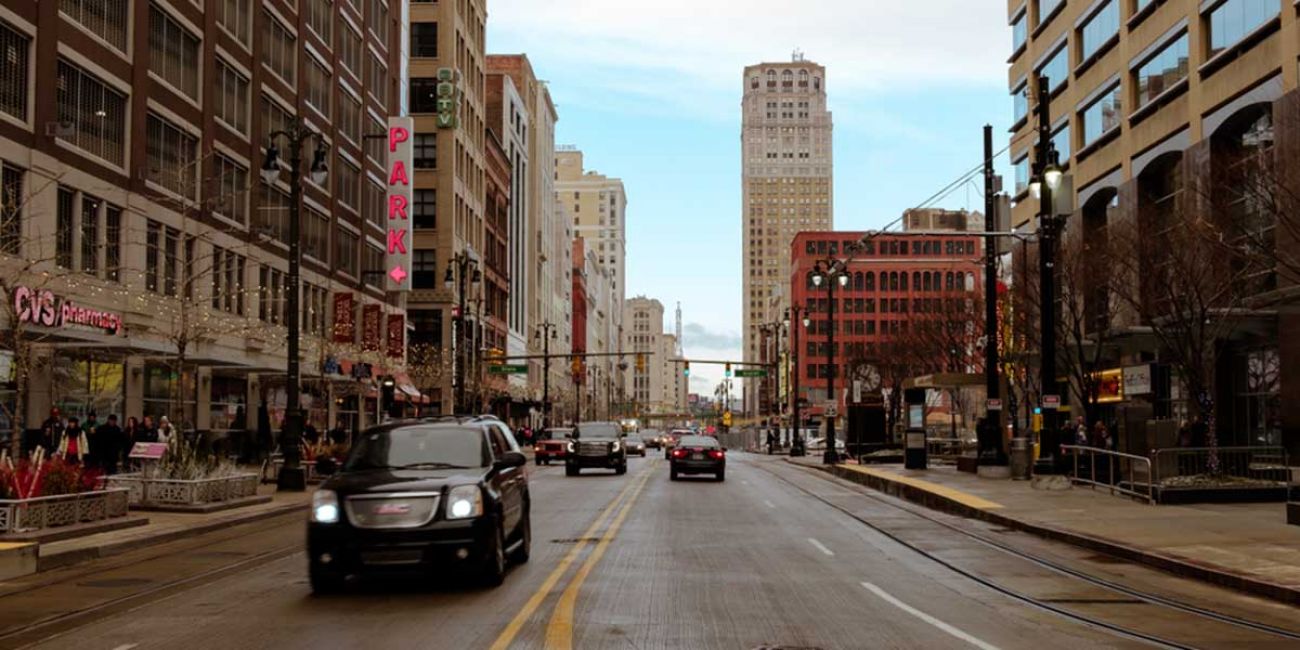Detroit neighborhoods are making progress, but not all feel the love


Home values are up and foreclosures are down in Detroit since 2013, as some of the city’s quality of life indicators are moving in a positive direction.
In his second term, Mayor Mike Duggan has made neighborhoods a priority and likely will address them Tuesday during his annual State of the City speech. Last year, he vowed all 22,000 of the city’s vacant buildings would be demolished or boarded by the end of this year.
Beyond demolitions, Duggan is taking a strategic approach to neighborhood redevelopment, focusing resources first on stable areas. More than $170 million is being poured into revitalizing 10 neighborhoods through the city’s Strategic Neighborhood Fund.
Related: Crime dips in Detroit. But ‘people do not feel safe,’ commissioner says.
But progress hasn’t been as fast as some would like and many Detroiters who live outside neighborhoods targeted for redevelopment question when help will arrive.
Bridge Magazine on Friday discussed the state of Detroit neighborhoods with Donna Givens, president and CEO of the Eastside Community Network, a community development group. The interview was edited for length and clarity.
Bridge Magazine: Many of Detroit’s successes recently are well publicized. What’s happening under the radar?
Donna Givens: The city is now 25 percent middle class [the lowest rate in America’s big cities.] The impact of Detroit losing its stature as the engine for black middle class should not be ignored. There should be some public policy thought around that. So much of that happened because of mortgage foreclosure, tax foreclosure.
Bridge Magazine: What can the mayor do about that?
Donna Givens: I hope he will announce he will work with the governor to create policy to place a moratorium on tax foreclosures. How can we keep foreclosing on personal property when we are giving large corporations such large tax breaks? I understand that corporations hiring people is a public good and that’s the reason we give tax breaks. Keeping people in their homes is just as important.
Bridge Magazine: Detroit is more than five years post-bankruptcy. What other economic questions need to be addressed?
Donna Givens: There are some things even the best mayor in the world could not accomplish unless we had some changes to how we produce revenues for cities.
The question is, are there really enough revenues to cover all the responsibilities of a city? No. Property tax collection is down because properties are valued less than 10 years ago. The only way to change the revenue situation in Detroit is to ask the Legislature for permission for a new tax like an entertainment tax or increase some other tax.
It’s not a Detroit thing, there’s a statewide gap in revenues and the money needed to operate cities. Mayor Duggan has a great deal of bipartisan support across the state. If he used his voice to really talk about looking at our revenue structure, he could actually make a difference.
Bridge Magazine: Which quality of life issue is most pressing now?
Donna Givens: Housing is No. 1. If you look at the wealth of the average homeowner in Detroit, they don’t have money for the reinvestment needed to make improvements to their home. If we don’t help them, what’s the alternative?
Bridge Magazine: The city has identified 10 neighborhoods to revitalize with housing, gardens and commercial sites and more. The mayor will likely highlight some of those neighborhoods and neighbors. Is the Strategic Neighborhood Fund working?
Donna Givens: There is not one perspective on the Strategic Neighborhood Fund. Some people think when city planners come in, they already have a idea of what they want to happen. Some people are optimistic the city is going to do what they say they will. When it comes to neighborhoods not targeted by city, there’s a general feeling the city doesn’t care about their neighborhoods and, “when is it going to be our turn?” The city will say, “we can’t do every neighborhood at once.” But some people feel frustrated and neglected. We’re talking about people who are taxpayers. Their taxes are being used to improve neighborhoods, but not theirs. I’ve heard some people say, “why am I paying taxes?”
Bridge Magazine: What’s the good news?
Donna Givens: I want to be sure to strike a balance: I think Mayor Duggan has every right to celebrate and stand up and say what he’s accomplished. There are many people in many neighborhoods who will say they see improvement in basic city services, garbage collection, streetlights and street cleaning and more responsive government.
Bridge Magazine: Last year, the mayor said the city would have all of the vacant properties demolished or boarded up by 2019. Is that a good goal?
Donna Givens: Is blight removal doing the same thing as urban renewal, removing people from certain spaces? I don’t have a problem with blight removal as long as you’re putting something there.
In one neighborhood, we tracked $1.5 million in demos and very little going into home repair, very few houses being purchased and rehabbed. If the money we’re spending in neighborhoods is heavily slanted toward demos and not as much to maintain property, I just worry about what that means.
You can say, “look at all these houses we’re building.” But how many are available to people with low to moderate income? How many homes are being taken by the tax assessor and sold at auction? For the most part, you’re talking about homes of people of low to moderate income. And the houses we’re building are for people making more money.
Whether you say it or not, it’s displacement. That’s the only way I can do the math.
Related stories
- Detroit wants to extend comeback to neighborhoods. So far, it’s a slow go
- Is Detroit finally turning the corner?
- Poverty is Detroit’s biggest problem. Gentrification doesn’t come close.
- Is your Detroit neighborhood primed for a rebound? (interactive map)
- Poor people at risk of eviction as tax credits expire and Detroit revives
- Real estate is hot in Detroit. But its top owner, the city, isn’t selling.
- Rising rents. Falling wages. Detroit’s poor face housing crisis.
- Banks are lending again in Detroit … if you live in the right neighborhood
- Tax breaks for poor neighborhoods steered to booming pockets in Detroit
See what new members are saying about why they donated to Bridge Michigan:
- “In order for this information to be accurate and unbiased it must be underwritten by its readers, not by special interests.” - Larry S.
- “Not many other media sources report on the topics Bridge does.” - Susan B.
- “Your journalism is outstanding and rare these days.” - Mark S.
If you want to ensure the future of nonpartisan, nonprofit Michigan journalism, please become a member today. You, too, will be asked why you donated and maybe we'll feature your quote next time!

